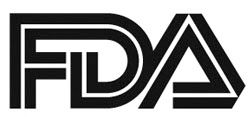FDA Grants Priority Review to BLA for KTE-X19 in Relapsed/Refractory MCL
A Biologics License Application for the investigational chimeric antigen receptor T-cell therapy agent, KTE-X19, was accepted by the FDA and granted Priority Review for the treatment of adult patients with relapsed or refractory mantle cell lymphoma, according to a press release from Kite, developer of KTE-X19.<sup> </sup>

A Biologics License Application (BLA) for the investigational chimeric antigen receptor (CAR) T-cell therapy agent, KTE-X19, was accepted by the FDA and granted Priority Review for the treatment of adult patients with relapsed or refractory mantle cell lymphoma (MCL), according to a press release from Kite, developer of KTE-X19.1
The FDA Priority Review was based on data from thephase II ZUMA-2 trial, which were presented in 2019 at the American Society of Hematology (ASH) Annual Meeting. At a median follow-up of 12.3 months (range, 7.0-32.3), 93% of patients treated on the study responded to treatment with KTE-X19 after a single infusion, and 67% of them achieved a complete response (CR). Of the patients who achieved a CR at the time of the efficacy analysis, 78% remained in remission. In the first 28 patients treated, who were followed for a median of 27.0 months, 47% of responders remained in remission at the time of the analysis.2
Treatment-emergent adverse events (TEAEs) of any grade frequently observed with KTE-X19 treatment included pyrexia (94%), neutropenia (87%), thrombocytopenia (74%), anemia (68%), and hypotension (51%). The most common grade 4 events were neutropenia (69%), thrombocytopenia (35%), hypoxia (9%), and hypotension (3%). Grade 5 TEAEs occurred in 2 patients, which were pneumonia and staphylococcal bacteremia. No grade 5 cases of cytokine release syndrome occurred.2
“Despite recent advances, patients with relapsed/refractory mantle cell lymphoma currently face a significant lack of effective treatment options once their disease no longer responds to currently available therapy,” said Ken Takeshita, MD, global head of Clinical Development at Kite. “Based on the encouraging results for KTE-X19, we are eager to continue discussions with the FDA on how to bring this innovative treatment to these patients who may benefit from CAR T-cell therapy.”
ZUMA-2 is an ongoing multicenter study evaluating the efficacy of KTE-X19 in patients with relapsed/refractory MCL. The primary end point of the study is objective response rate, with secondary end points including the duration of response, best objective response, progression-free survival, overall survival, and the incidence of adverse events.
The study included patients with MCL who had up to 5 prior regimens for treatment of their disease, which must have included anthracycline or bendamustine-containing chemotherapy, an anti-CD20 monoclonal antibody, and ibrutinib (Imbruvica) or acalabrutinib (Calquence); at least 1 measurable lesion; platelet count ≥ 75,0000/uL; a creatine clearance > 60 mL/min; cardiac ejection fraction of at least 50% with no evidence of pericardial effusion and no evidence of clinically significant electrocardiogram findings; and baseline oxygen ≥ 92% on room air. Individuals with known history of human immunodeficiency virus, hepatitis B or C, history of a seizure disorder, cerebrovascular ischemia/hemorrhage, dementia, cerebellar disease, cerebral edema, posterior reversible encephalopathy syndrome, any autoimmune disease with central nervous system involvement, or presence of a fungal, bacterial, viral or another type of infection were excluded from the study.
Currently, KTE-X19 is not approved in any country. The target action date for the approval of KTE-X19 in relapsed/refractory MCL is August 10, 2020.1
References
- U.S. FDA grants priority review for Kite’s KTE-X19 biologics license application (BLA) in relapsed or refractory mantle cell lymphoma [news release]. Santa Monica, California: Kite; February 10, 2020.https://bit.ly/2OJYvpT. Accessed February 10, 2020.
- Wang ML, Munoz J, Goy A, et al. KTE-X19, an anti-CD19 chimeric antigen receptor (CAR) T cell therapy, in patients (Pts) with relapsed/refractory (R/R) mantle cell lymphoma (MCL): results of the phase 2 ZUMA-2 study. Presented at: 2019 ASH Annual Meeting, Orlando, FL, December 7-10, 2019. Abstract 754.